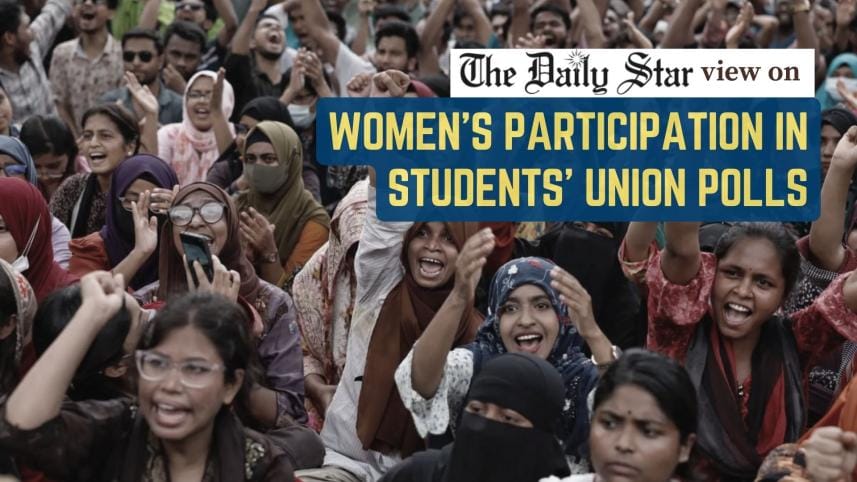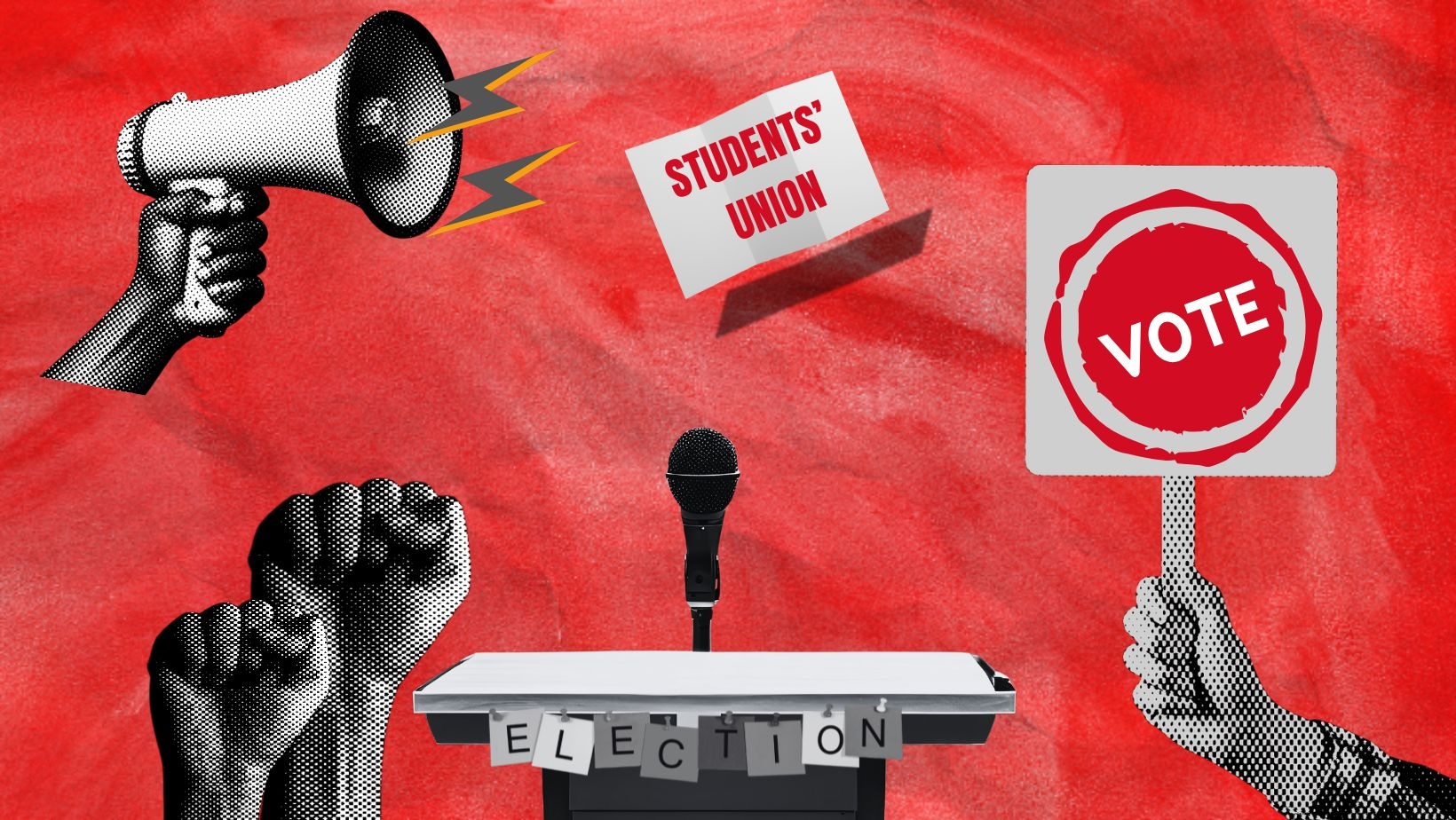Women eyeing top DUCSU posts sparks hope

Ten women vying for top positions in the upcoming Dhaka University Central Students' Union (DUCSU) election is a welcome change for women's political participation in Bangladesh. Although women, especially students, have always been at the forefront of major revolutions, including the recent July uprising, their political leadership at the national level has long been undermined by the prevailing dynastic political culture, and most top positions have been held by men. Even the last two DUCSU elections, in 2019 and 1990, saw very few or no women contesting for top posts. And in independent Bangladesh, no woman has yet held the vice-president (VP) or general secretary (GS) position. Against that backdrop, this year's DUCSU election is significant: five women are competing for the VP post, one for GS, and four for assistant general secretary.
However, the overall number of female candidates in both DUCSU and the Jahangirnagar University Central Students' Union (JUCSU) polls remains low compared to male candidates, although the final lists have yet to be confirmed. So far, 402 male candidates have been cleared for 28 DUCSU posts, compared to only 60 women. Similarly, for JUCSU's 25 posts, 276 nominations have been filed, of which only 57 are women. And of them, 43 are for six reserved seats for women. What is more disappointing is that no female candidate at JUCSU is running for VP. Although registered female voters in both universities are nearly equal in number to male voters, when it comes to actual political participation, women remain sidelined. Not surprisingly, student wings of major political parties reflect their parent parties' attitude towards female representation. For instance, the panels of Jatiotabadi Chatradal, Islami Chhatra Shibir, and Islami Chhatra Andolan have not nominated any women for DUCSU's top three posts. At JUCSU, the Jatiotabadi Chatradal- and Islami Chhatra Shibir-backed slates nominated female students only for reserved seats.
While these party wings have failed to create space for women leaders, other factors also discourage female participation in campus politics. This is evident from the low number of nominations from female halls at Jahangirnagar University, leaving many posts uncontested at the female dormitories. According to a report in this daily, several female leaders from last year's mass uprising are absent from the JUCSU ballot. Many of them feel undervalued post-uprising. Cyberbullying, harassment, family restrictions, and a lack of inclusive, female-friendly campuses have also contributed to this disengagement.
Despite the obstacles, Umama Fatema, SK Tasnim Afroz Emi and their comrades in the fight for female leadership are not backing down. We applaud their resilience and hope that, if elected, they will work to fulfil their electoral promises and help build an inclusive, non-partisan, safe campus for all students.



 For all latest news, follow The Daily Star's Google News channel.
For all latest news, follow The Daily Star's Google News channel. 

Comments